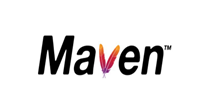Quick Info
Description
The RPM Package Manager (RPM) is a toolset used to install a single package, track files added by the package on the system, and remove files using a single command. Distributed with the Red Hat Linux distribution and its derivatives.Quick Info
Summary
You can use the RPM Package Manager (RPM) to install, uninstall, and manage software packages in UNIX environments.
With the RPM plugin, you can automate RPM functions into your HCL Launch Processes.
This plugin includes one or more steps, click Steps for step details and properties.
Compatibility
This plugin requires HCL Launch version 7.0 or later.
This plugin runs on all operating systems that HCL Launch supports.
Installation
See Installing plugins in HCL Launch for installing and removing plugins.
History
The following table describes the changes made in each plugin version.
| Version | Description |
|---|---|
| 4 | Minor enhancements |
Usage
Use the RPM plugin to automate installing, uninstalling, and updating packages in a deployment process. Packages are in the RPM file format. Typically, a package contains an application and all the required files that are associated with that application.
You can include RPM command options on the steps. See the RPM Guide for list and description of options that can be included on each command.
Step palette
To access this plugin in the palette, click Installers > RPM.
Tips
When you remove packages, if there is a dependency on another package an error message is issued.
An upgrade operation installs a new version of a package and removes all previous versions of the same package. If a package is not installed, the upgrade operation installs the package.
Steps
The following process steps are available in the xRPM plugin.
Install RPM
Install an RPM package.
| Name | Type | Description | Required |
|---|---|---|---|
| Install Options | String | One or more options to be used when installing the package. Put each option on a separate line. See the RPM Guide for a list of options. | No |
| RPM packages | String | A list of one or more packages to be installed. Put each package name on a separate line. | Yes |
Uninstall RPM
Remove a package.
| Name | Type | Description | Required |
|---|---|---|---|
| Erase Options | String | One or more options to use when removing the package. Put each option on a separate line. See the RPM Guide for a list of options. | No |
| Package name | String | A list of one or more packages to be uninstalled. Put each package name on a separate line. | Yes |
Update RPM
Update a package.
| Name | Type | Description | Required |
|---|---|---|---|
| RPM packages | String | A list of one or more RPM package names to be installed. Put each package name on a separate line. | Yes |
| Update Options | String | One or more options to use when updating the package. Put each option on a separate line. See the RPM Guide for a list of options. | No |
 Steps
Steps
